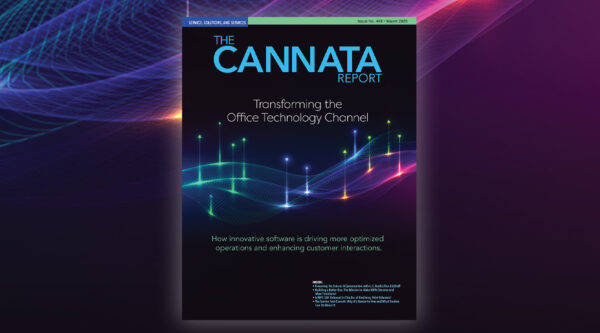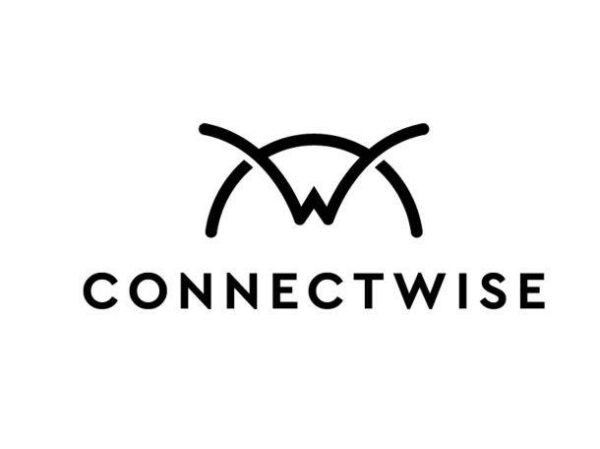Avoid following the same blueprint used for your imaging business.
When asked to restate the company value proposition during an oral quiz, a green sales trainee enthusiastically misspoke: “Overpromise and under-deliver!” exclaimed the youthfully eager one, amid laughter from snickering colleagues. According to Tyson Stargel, co-president of Stargel Office Solutions in Houston, Texas, promising clients too much is a bad idea for print-channel dealers starting up managed IT and cybersecurity services. Trying to navigate the managed services provider (MSP) route alone is also not recommended.
“Without a partner to hold our hand and train our people, we would have failed,” stated Stargel. In his case, that partner is Collabrance LLC, the managed IT subsidiary of GreatAmerica Financial Services. The spin-off company acts as a virtual chief information officer (vCIO) for Stargel’s MSP clients.
What else is ill-advised when starting a managed IT services business? Having unrealistic expectations usually doesn’t bode well, Stargel warned. Hiring people who are only technically adept can also be a challenge: “They need to be customer-facing, too, which can be a difficult combination to find.”
Stargel added that dealers should not underestimate the employee stress associated with taking care of multiple networks. These and other common miscues can trip dealerships on the MSP path to profitability, while other mistakes can come in the form of downright pitfalls fraught with hidden or unsuspected danger.
Prioritize Saving Costs and Resources
Here’s a sound tactic that dealers should practice: Do whatever it takes to deliver on the promise of saving on costs and resources. Nobody wants downtime data loss, so technical competency is a given. Providing high-quality customer service and efficient communication also should go without saying. After all, issues such as not being able to get in touch with the tech support team or having difficulty understanding billing statements can frustrate businesses that rely on their MSP.
Managing realistic expectations for the client should be a top priority, according to Stargel. He and his older brother, Slade, represent the second generation of the family business started by their father, Jack, 37 years ago. The Stargels began selling managed services in 2011. “We broke even after about three years,” Tyson recalled, which was two years ahead of their self-imposed schedule.
That return on investment had to cover the $100,000 annual salary of the high-level IT expert they hired at the time, plus another $5,000 per month for Tier 1 help desk support. The dealer has since adopted a two-pronged approach to client help desk needs, using ConnectWise. Today, Stargel has grown its MSP business to some 90 active contracts, which contributed $2.5 million in revenue and accounted for more than 10% of total sales ($23.5 million) in 2023.
Managed IT Services = A Growing Opportunity
Ensuring reliable managed IT services represents a growing opportunity for dealers. The global managed services market has skyrocketed with the post-COVID-19 pandemic shift to remote and hybrid work. Globally, its value was estimated at $300 billion in 2023, according to Grand View Research, and is anticipated to grow at a compound annual growth rate of 13.6% over the next six years. Fortune Business Insights projects that the MSP market size could nearly double and reach $557 billion as early as 2028. But beware: Nobody suggests the dealer path will be smoothly paved.
Detours Ahead
“Expect to struggle the first two years,” said Art Clarke, vice president of managed technology services at DOCUmation, which has 14 locations in Texas. It takes some time and effort to accurately calculate staffing/labor costs and build a client base, not to mention build trust. “To become profitable, how many customers do you need to scale up to?” he asked. “Remember, they’re stepping into new territory with you.”
There are also legal and tax issues to consider, as well as disaster recovery and cyber insurance costs. And don’t forget about personnel, benefits, and other human resources issues. Patience can pay off, however. In 2023, DOCUmation posted $5.4 million in managed services sales, accounting for some 13% of overall revenue for the year.
Like the fellow Texans at Stargel, DOCUmation engaged Collabrance as its MSP provider when it started offering managed IT services in 2012. “They filled our gaps when it came to help desk, network infrastructure, and project management,” reported Clarke. Then, during the COVID-19 outbreak, DOCUmation, which ranks as a “Best Place to Work” by the Texas Association of Business, brought managed services in-house. “It made more sense for us from a control and financial standpoint,” explained Clarke, who soon will celebrate his eighth year with the family-owned, third-generation dealer. IT employees now number 21, which is about 10% of the company’s workforce.
In the northeast United States, fellow technology solutions provider Fraser Advanced Information Systems in West Reading, Pennsylvania, embarked on the first phase of its MSP journey in 2015. That’s when the Pennsylvania dealer restructured its internal engineering group to accommodate a managed services practice. “Once a functioning business was established, we moved on to Phase 2,” revealed Justin Drabouski, director of technology and security. The dealer employs more than 185 people at seven locations, including team members at its Watchkeep subsidiary. (Fraser acquired managed IT firm Aaxios Technologies in late 2021 and later renamed it Watchkeep.)
In his ninth year working in the dealer channel, Drabouski ran Fraser Advanced Information System’s managed services during his first six years. “The buildout phase [Phase 2] is about growth, scaling, and targeting increased revenues,” he said. “Part of that is hiring the expertise to set atop the framework we’ve established. This is where we are at now.” The sale of managed services approached 20% of Fraser’s total revenue in 2023. Emphasizing renewal conversions, the 53-year-old firm supports 240 MSP customers in the Mid-Atlantic region and boasts an impressive 95% client retention rate.
According to Drabouski, the bottom line when building effective services is: “If your sales don’t justify expenses, you’re going to struggle to make payroll.” Of course, no one wants to be put in that unenviable position, especially when facing startup implementation costs between $1 million and $2 million for a modest, eight-person operation. Drawing on some 100 months of experience, the Fraser Advanced Information Systems’ folks have learned a trick or two.
“From a finance perspective, dealers tend to be very well-run operations,” observed Drabouski, who came from the value-added reseller (VAR) side of the business. However, the comfort of a financial safety net can have the detrimental effect of slowing down progress. “Looking back, I bet we spent 60% more time making decisions than was needed,” he estimated. That’s primarily because most dealer owners cautiously maintain a risk-averse mindset, which can be difficult to change and often leads to commitment issues.
Some companies spend years analyzing whether providing managed services can turn profits—or not. MSP-related expenses and revenues need to be reviewed quarterly. Still, the go-to-market decision needs to happen much faster, noted Drabouski, who added that slow-roll transitions killed more than a handful of organizations in the 2010s and 2020s. His advice: try to expedite the determination process. “Either get on board with this as a functional business or step away,” Drabouski urged.
For those dealers who do commit, Forbes has referred to managed IT services as “the small business’s security savior.” Hacker-seeking chief information security officers (CISOs) need to protect their vulnerable empires from digital sabotage. While a critical need, mitigating cybersecurity issues is only one aspect of a MSP’s responsibilities. Managed services cover an array of professional and technical support, from hardware and software maintenance to remote monitoring to help businesses manage, maintain, and secure their networks. These also may include network administration, data backup/recovery, and cloud hosting/support.
Going to Market with Managed IT Services
How to do managed services may be the biggest decision for dealers ramping up their IT and cybersecurity game. “Define the way you will go to market,” advised Patrick Layton, a partner at Impact Networking and president of its Managed IT Services Group based in Lake Forest, Illinois. There are three options:
- Build your MSP offering organically.
- Acquire another firm that possesses the necessary expertise.
- Bring in a third-party provider.
If you buy the expertise, it’s important to find an MSP to acquire and work to incorporate what you do well in the imaging space with what they do well in the IT space, recommended Layton. Building it requires hiring an MSP veteran to construct a program from the ground up. It’s either that or, according to Layton, partnering with a smart MSP veteran to find the right help desk, network operations center (NOC), and security operations center (SOC) partners. “Then, hire the minimum staff needed to manage client relationships; these people serve as low-level boots on the ground,” he added.
Defining target clients and services to sell to those markets is crucial. “A la carte is very hard to manage,” Layton warned. Instead, he suggests thinking in terms of bundles. “For example, if you are going to sell help desk services as a standalone product, insist on selling desktop maintenance with it,” he said. Why? Because, according to Layton, proper maintenance can reduce support calls by almost 50%.
Drabouski, Clarke, and Stargel agree that sharpened focus helps the MSP cause and can eliminate staffing issues. At the outset, it can be tempting to chase any and every type of business opportunity because the pressure to generate revenue can be highly intense. But don’t do it, pleaded Drabouski. Taking the wrong type of business can be disruptive.
Fraser has developed a target customer profile for managed IT services. “Identify who you’re going to serve, say, SMBs with between 20 and 50 users. They have to be Microsoft shops that require MS-certified engineers,” said Drabouski.
The 20 to 50 end user range is the sweet spot for Stargel Office Solutions, too. “More than 75 users should have an IT administrator on staff,” said Tyson Stargel. The approach taken with small- and medium-size businesses vastly differs from that for larger, Fortune 500 enterprise prospects. Whatever size prospect you consider, be sure to measure. Conducting an initial network inspection/assessment can unveil a true IT portrait, revealing problems or exposures to expect.
For DOCUmation, one key to narrowing operational focus has been limiting its number of strategic partners. “We have one laptop vendor, two network vendors, and one data backup vendor,” revealed Clarke. Over-staffing is another big no-no. “Trying to be all things to all people complicates structure and increases salaries,” Clarke warned. The solution can be as simple as deciding whether to specialize in Mac- or Windows-only environments.
Another key component for success in managed IT services is selecting the right caliber technicians and engineers. Like Stargel’s requirements, technical aptitude represents only half of the equation for DOCUmation’s hiring managers. New people need to fit in well. “We invest considerable time in assessing the character of our applicants,” said Clarke. He is fully aware of the head-butting nature of many IT people, who often feel the need to always be right. Candidates who make it past the first two interviews complete a third-party, 90-minute Insight Report questionnaire. They then advance to a third interview: an intensive, two- to three-hour marathon session. “This exercise is all about building relationships, breaking down walls, and obtaining truthful answers from people,” noted Clarke.
Why spend up to more than six hours vetting one job prospect? Because it pays off, in the end, for DOCUmation, which enjoys an employee retention rate of between 95% and 98% in the MSP arena. “We don’t want a turnstile culture where people stay with us for only six to 12 months,” said Clarke.
He also thinks providing MSP employees with professional career paths is essential for dealers. From Tier 1 and 2 statuses to management, project, or network advancement opportunities, dealers need to give each person something to which he or she can look forward. “It’s not all about making large sums of money,” noted Clarke.
Managed IT Services Requires a Top-Down Culture Change
Dealer management teams should not underestimate the fact that managed IT services is a new business that they need to grasp and understand. While it might sound trite, Drabouski insisted that the cultural shift must occur from the top down. “Some senior managers need to get out of their own way and realize this is a totally different business than the copier/printer side which is transactional,” explained Drabouski. Dispatching technicians is a prime example: As opposed to the office-imaging world wherein the dispatch practice is considered a good thing, it is a last resort in the remote-first, MSP environment.
“MSP is more like selling insurance,” continued Drabouski. “Timelines are different; the sales process is different. Fraser decided we would not use certain shared resources, and sales reps are one of those. Find your expert and listen!” he stressed.
Impact Networking’s Layton offers eager dealer owners and managers some final, free food for thought: Avoid the time-and-material (T&M) business model, where clients pay contractors based on the number of hours and amount of materials used during the execution of a given task. “If you are going to sell managed services, don’t give your sales team the option of selling T&M,” he cautioned. “If you do, they will always sell this as it’s easier, and you will never sell true managed services.”
Chew on that during your first strategic session for the second half of 2024. Then, when CISOs are shopping to forge stronger partnerships, provide sound reasons why they should choose your dealership. And, finally, trust the process: While MSP no doubt is a different animal, traditional dealers can profit from this business with a minimum of internal stumbling, detours, and workarounds along what can be a rewarding road.




